It costs Grenada 63 million USD annually to respond to Violence Against Women
Date:
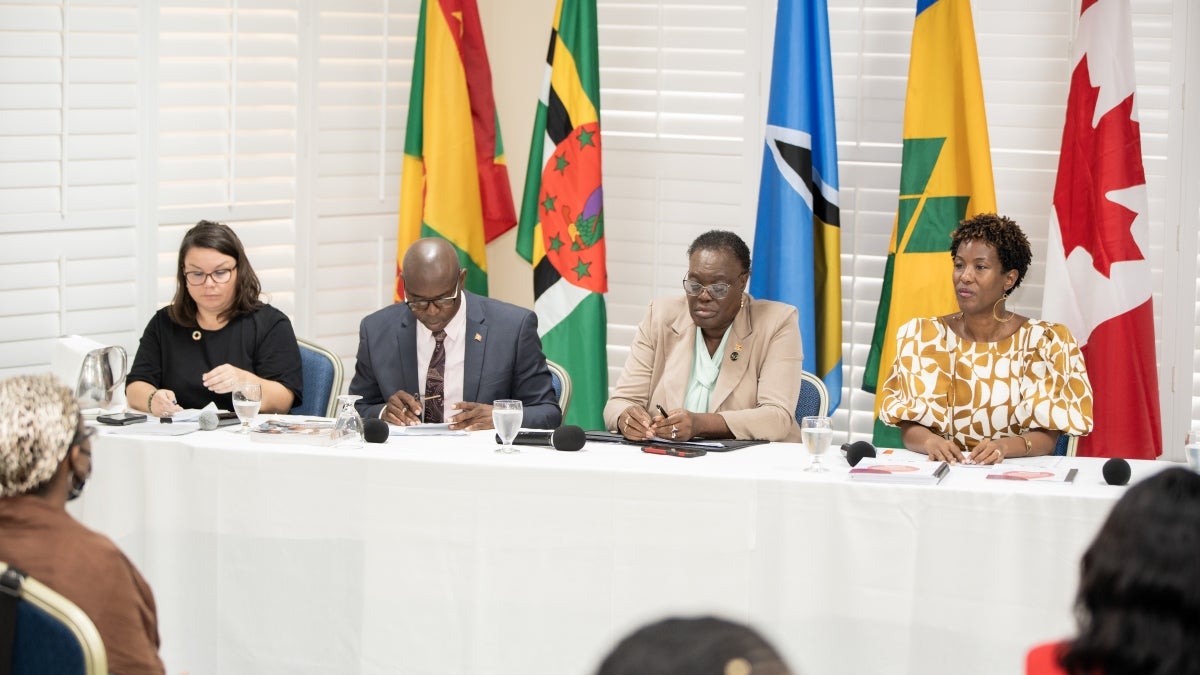
UN Women Photos / Brainstorm Productions and Sharon Carter-Burke
November 13, 2024, St. George’s Grenada: The total cost of Violence Against Women and Girls in Grenada in 2019 was 171.66 million Eastern Caribbean dollars or USD63.6 million. This represents 5.24 % of the country’s Gross Domestic Product (GDP) in that year.
The National Study on the Economic Costs of Violence Against Women and Girls (ECOVAWG) in Grenada was launched by Tonni Brodber, Representative of UN Women MCO Caribbean. Ms. Brodber was addressing the Global Affairs Canada-funded Build Back Equal Project Regional Steering Committee meeting.
Access the Grenada ECOVAWG Report here
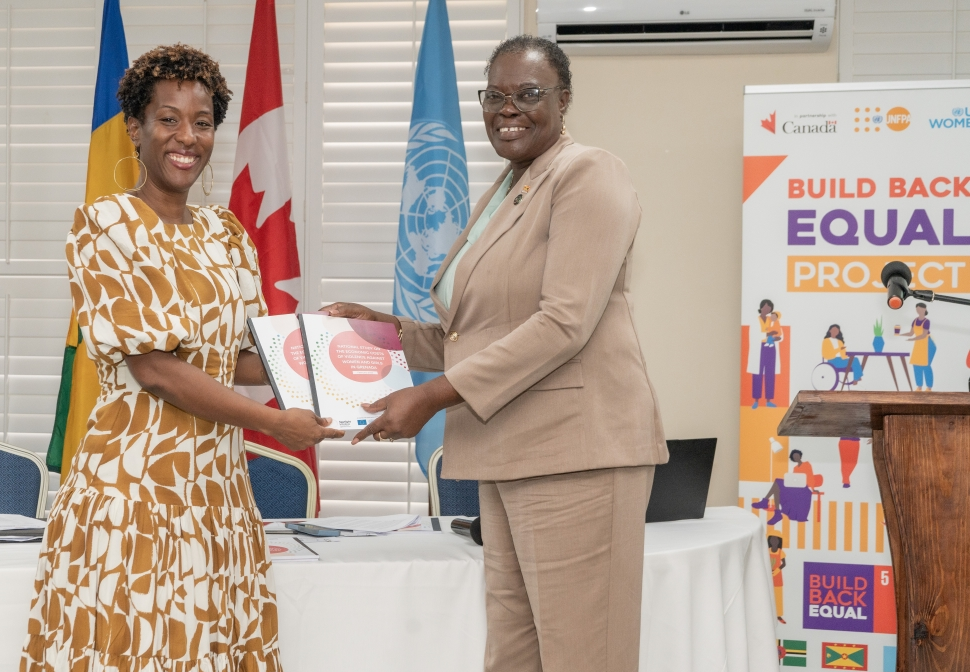
In explaining the centrality of realising gender equality, Ms. Brodber said in the moments of a hazard sometimes it is felt that the work of addressing gender-based violence for example can be delayed until after the crisis is dealt with.
“What we found is that in Grenada, 63.6 million US dollars is too expensive. But when we look at this cost of Violence Against Women and Girls (VAWG) to Grenada’s economy, we recognise that if this 63.6 million was directed into prevention and building a foundation to operate from, countries would be in a much stronger position. So, when any hazard hits people are more resilient.”
“Grenada is leading in the Caribbean on really demonstrating its political will from using Gender Responsive Budgeting and investing in the data to demonstrate the cost of inequality. Not only are 63.6 million dollars on the line, so are human lives”, Ms. Brodber said in commending Grenada on implementing several gender equality focused approaches for the country’s development. This includes the country’s support to data collection on VAWG through the UN Women led Grenada Women’s Health and Life Experiences Study which revealed that 39% of women who had ever been in intimate partner relationship had experienced at least one form of gender-based violence.
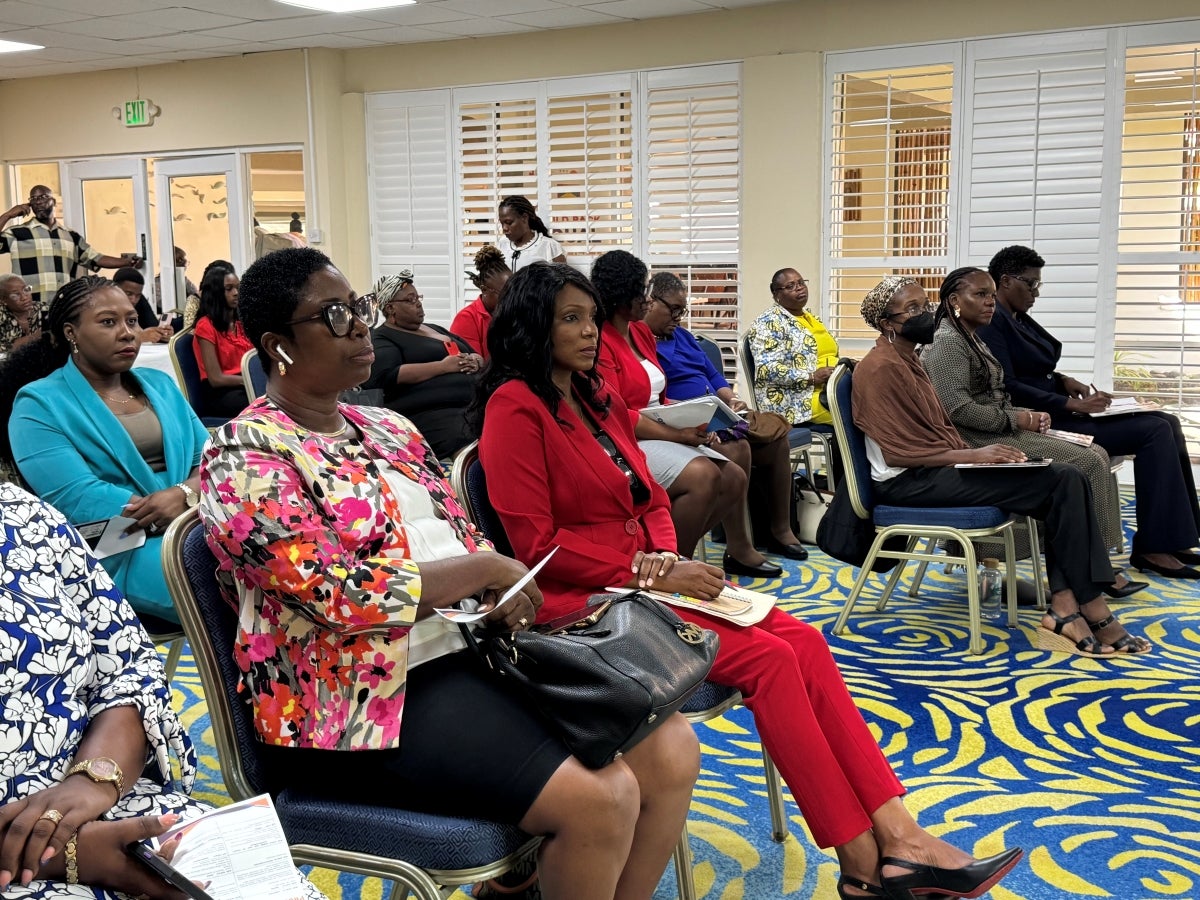
Senator the Honourable Claudette Joseph Attorney General and Minister of Legal Affairs, Labour and Consumer Affairs, delivering feature remarks on behalf of renada Prime Minister Dickon Mitchell said the launch of the Economic Violence against Women and Girls study is commendable.
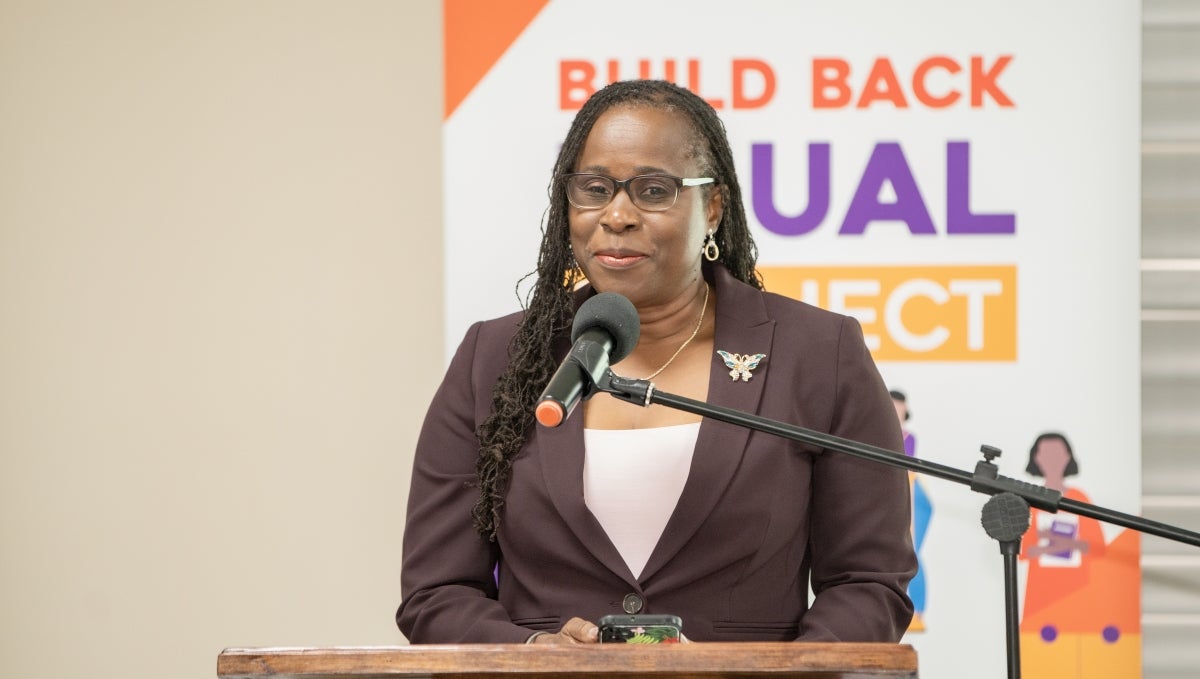
“It is pause for thought that this cost in terms of GDP of violence against women and girls in Grenada is 5.24%. These are significant resources that could be directed elsewhere. This is an area that I hope as duty bearers we can look at closely with a gender-budgeting lens, our new way of doing business. This is because implementing the recommendations will strengthen the capacity of institutions including law enforcement, health care providers and social services to respond effectively to cases of violence.
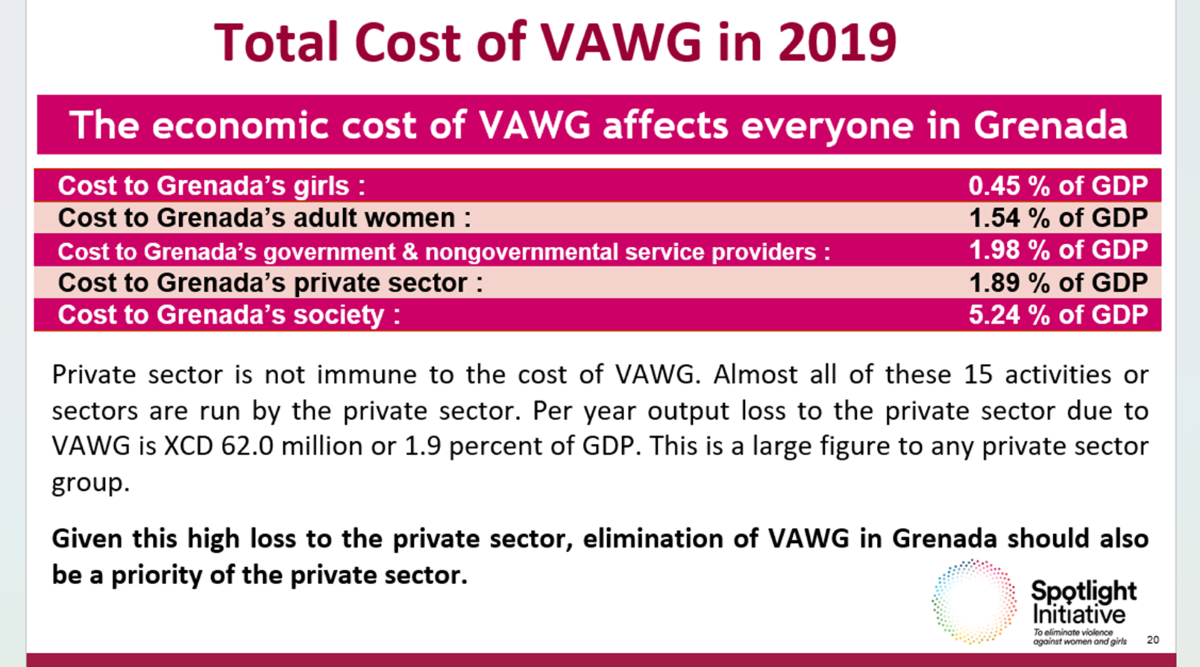
This will improve the overall system’s ability to protect and support victims of gender-based violence. However this must not be done in silos. Adopting a holistic approach that encompasses legislation and social reforms that targets immediate victims is needed in the short term but a long-term action plan is also required, to address the root causes of the issue including, shaping and redefining social norms across government, civil society organisations, business leaders and individual households.
Grenada remains committed to working with its national and international partners in the fight for gender equality and ensuring the rights and wellbeing of all women and girls… This is why the Build Back Equal Project is important because it covers all these areas, social protection, addressing unpaid care work, increased access to gender-based violence and sexual and reproductive health services, financial skills building of women MSME owners who are the backbone of our economy at a national level and more importantly, the backbone of our families.”
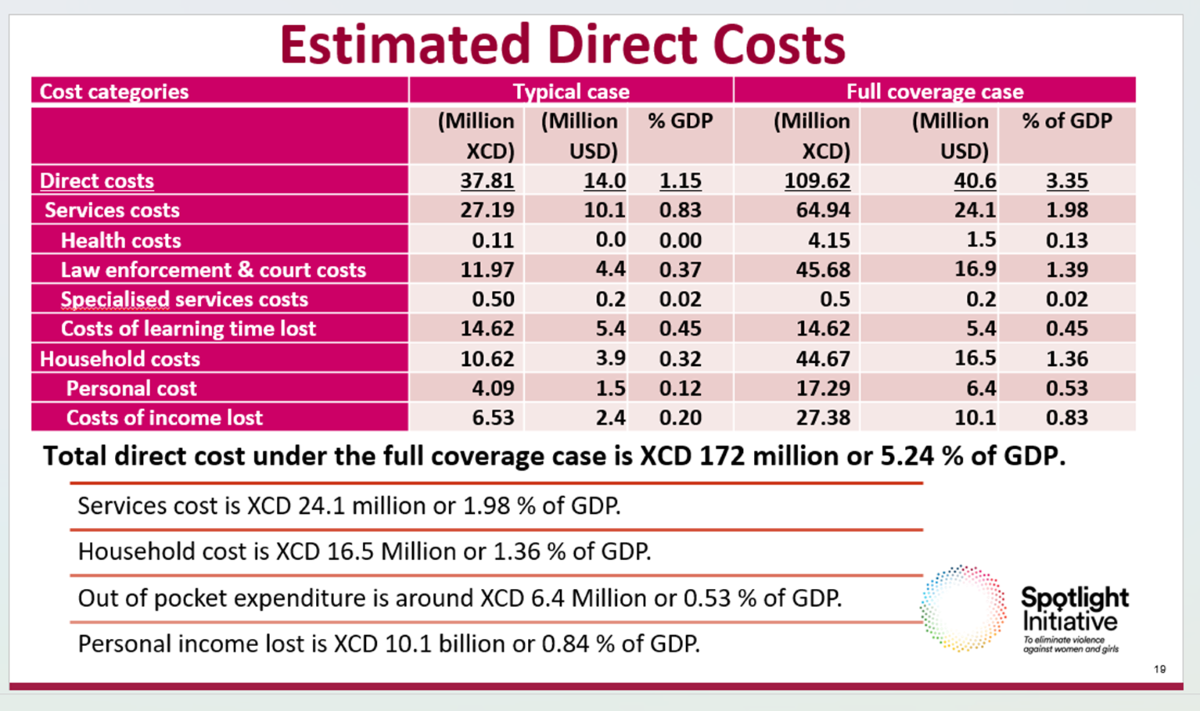
The ECOVAWG Consultant Research Team Lead Dr. Bazlul Khondker in his virtual presentation to the meeting stressed that, the cost of inaction is much higher costs down the line. Dr. Khondker said along with national consultant Dr. Tonia Frame, they captured data and calculated the costs at the household level and the services’ response.
The services costs include the healthcare services; law enforcement and judiciary; social services and specialised services for women affected by violence etc. which is captured from government agencies and Civil Society Organisations (CSOs) that response to incidences of violence and who provide services support to survivors.
At the household level, there are:
- Out-of-pocket expenses incurred by the survivors or/and by their families. This may include personal material/property losses and cash expenses by survivors due to violence; and
- Individual income loss due to irreversible population losses such as premature death of women, temporary and permanent disability due to violence, and reduced work productivity of survivors – leading to loss in output or income.
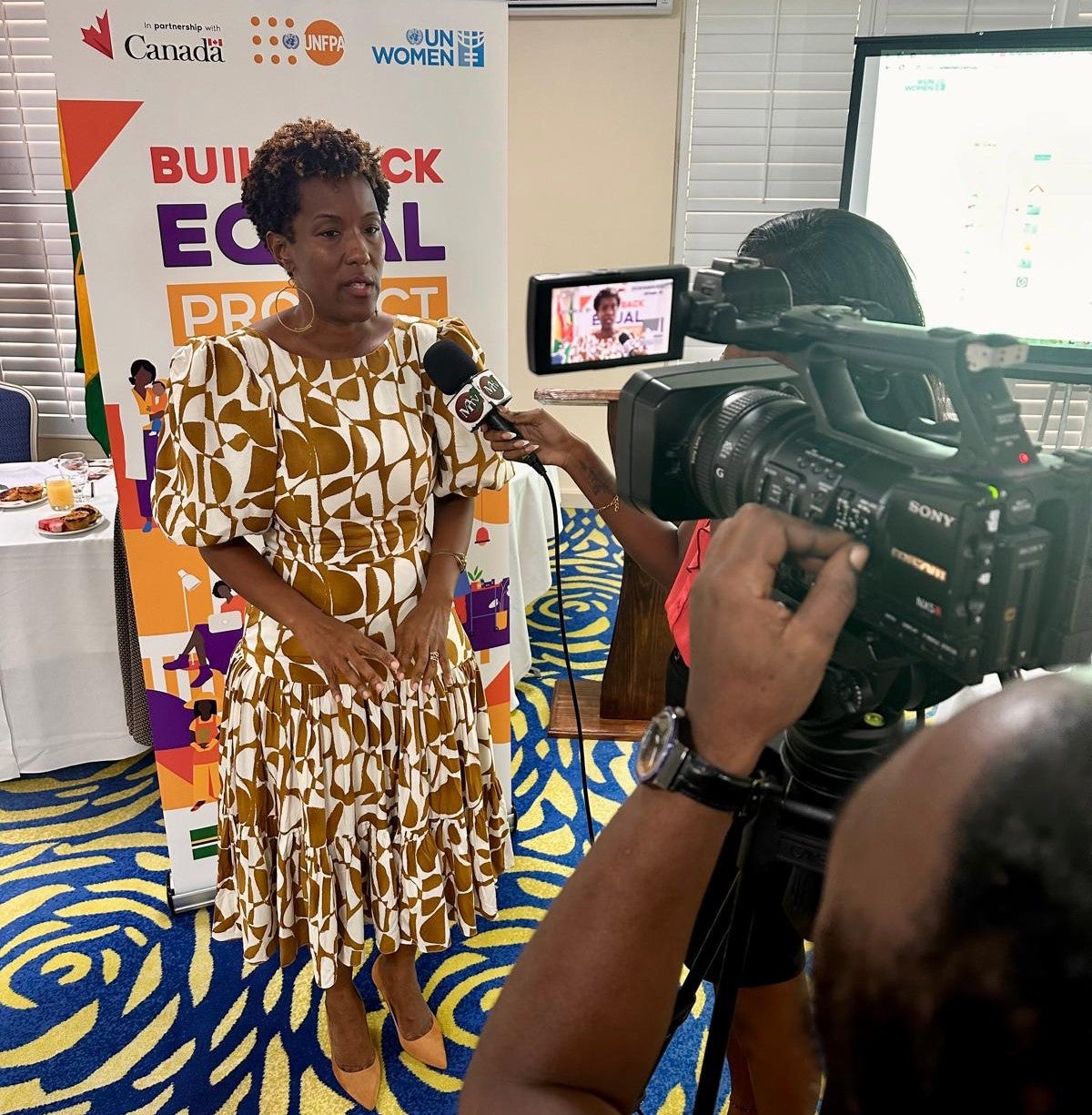
The UN Women Representative explained that the ECOVAWG study was started under the EU’s partnership with the UN and support to the Caribbean through the European Union-UN Spotlight Initiative and completed under the Build Back Equal (BBE) Project. She stressed the work would not have been possible without partnership.
Minister of State in the Ministry of Social and Community Development, Housing and Gender Affairs with responsibility for Social Development and Gender Affairs, Senator the Honourable Gloria Thomas said there has been notable progress on the road to gender equality that Grenada could be proud of.
“We are conducting a second round of measuring SDG indicator 5.4.1 on unpaid care work through the Build Back Equal Project, meaning we will have comparable data. The fact that we are launching the Economic Cost of Violence report is an achievement. Advocacy will be supported through the BBE Project and this will translate into policies and programmes for example UN Women signed a MOU with Grenada to support work on model legislation on care work. Grenada has been one of the first to develop and implement a gender-responsive budget under the Spotlight Initiative. It means that the economic costs of violence against women will be able to understand the implications on the national budget with a gender lens.
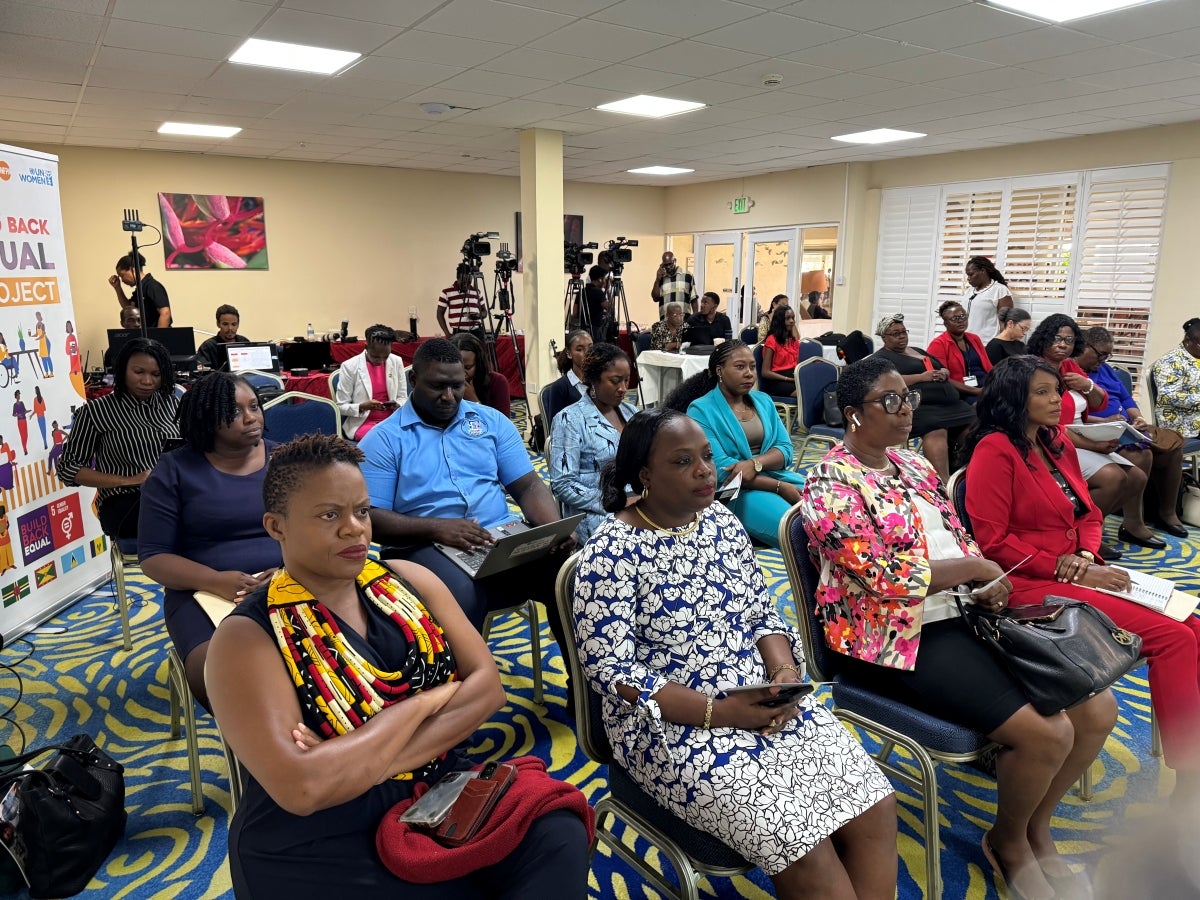
The Build Back Equal Project is funded by Global Affairs Canada and implemented with the Governments of the four beneficiary Caribbean countries: Dominica, Grenada, Saint Lucia and Saint Vincent and the Grenadines, with UN Women as lead agency and UNFPA.